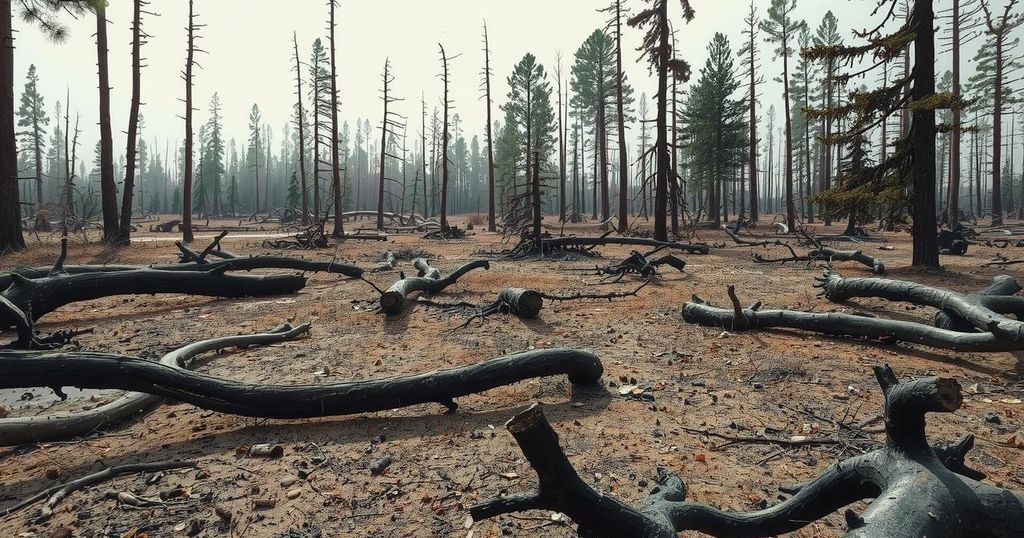At the ICJ, low-lying atoll nations requested a legal opinion asserting that inaction on carbon emissions breaches international law. With sea-level rise threatening their existence, nations like Tuvalu and the Marshall Islands presented compelling evidence of their imminent danger. This reflects a clash between industrialized nations downplaying accountability and vulnerable states advocating for responsibility amidst escalating climate challenges.
At the International Court of Justice (ICJ), representatives from vulnerable low-lying atoll nations have formally requested a definitive advisory opinion regarding the legal implications of climate inaction, specifically concerning carbon emissions. As sea levels continue to rise, threatening their very existence, these nations argue that failure to act constitutes a violation of international law. This call follows two weeks of hearings in The Hague, where contrasting narratives emerged: wealthier industrialized nations downplaying their culpability against poorer nations seeking accountability.
During the hearings, Eselealofa Apinelu, a diplomat from Tuvalu, which is facing imminent uninhabitability due to rising seas, emphasized the urgency of the situation: “With the rise in sea level, Tuvalu will likely become uninhabitable long before complete inundation.” Moreover, the General Assembly’s decision to request an advisory opinion from the ICJ was influenced by the efforts of Vanuatu, a Pacific nation concerned about the legal obligations of states regarding climate action. While this opinion is expected in 2024, it may still help guide future legal cases regarding climate change.
The arguments provided by major polluting nations such as the United States and China suggest that existing treaties, including the Paris Agreement, fulfill their responsibilities. They claimed that carbon emissions do not equate to transboundary pollution. In contrast, developing nations highlighted the multitude of human rights violations resulting from climate change.
Visually compelling presentations from Tuvalu and the Marshall Islands underscored the potential catastrophes of climate action inaction, with simulations showing the obliteration of land due to rising tides. Marshall Islands’ climate envoy Kathy Jetnil-Kijiner poignantly asserted, “It is not too late to prevent these doom scenarios.” Both nations are also pursuing land reclamation efforts, relying heavily on donor support to implement them effectively. The Marshall Islands projects a need of approximately $9 billion to safeguard its populations, while Tuvalu seeks $1 billion for expansion and elevation of its largest island.
In closing, the plight of these atoll nations highlights the urgent need for international cooperation and accountability in addressing climate change. They plead for action now, linking the survival of their communities directly to the global response to climate threats. As Eselealofa Apinelu stated, “Tuvalu asks that you be a part of the solution.”
This article addresses the contemporary issue of climate change and its severe impacts on low-lying atoll nations, particularly as they confront the realities of rising sea levels. The discussion at the ICJ highlights a critical juncture where international law, human rights, and climate diplomacy intersect. As vulnerable nations advocate for a definitive advisory opinion to hold larger polluting countries accountable, the outcome may significantly influence future legal standards and climate negotiations on a global level.
The discussions at the International Court of Justice underscore the dire situation facing low-lying atoll nations due to climate change, with their pleas for accountability resonating in a complex international landscape. As these nations seek legal and financial support to adapt to rising sea levels, the potential advisory opinion may serve as a catalyst for enhanced action and responsibility among major polluters. Their calls for urgent cooperation remind the world of the pressing challenges posed by climate change and the critical need for solidarity and proactive measures.
Original Source: www.benarnews.org




